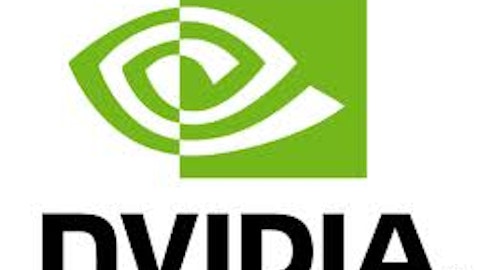Amazon.com started selling books in ’95, and since then it’s grown into one of the largest e-commerce companies in the world. The online retailer wreaked havoc on the brick-and-mortar book business throughout the early 2000s, eventually helping put one of the largest book stores, Borders, out of business in 2011.
The remaining book retailers, Books-A-Million and Barnes and Noble, are struggling to stay relevant in an industry that is rapidly becoming digitalized. The introduction of e-readers and tablets have all but sealed their fates. Both companies have lost around half of their market capitalization over the last five years.
In thinking about just how disruptive Amazon has been to the book industry, I’m struck by the notion: How long can GameStop Corp. (NYSE:GME) fend off the transition to digital?

The outrage and backlash by gamers was astounding. And when the other major game console maker, Sony Corporation (ADR) (NYSE:SNE), announced that it would allow game sharing (the opposite of Microsoft Corporation (NASDAQ:MSFT)), Microsoft had no choice but to reverse its policy and apologize to its loyal following. Soon after, the market completely forgot about the incident, and GameStop Corp. (NYSE:GME) was back in investor’s good graces. I think they were too quick to forgive and forget.
For a company that derives half of its gross profits from pre-owned games, GameStop’s retracement to $50 per share seems rather irrational. This is especially true when you think about what the digitizing of video games could ultimately do to GameStop Corp. (NYSE:GME)’s business model — it could effectively render its model nonexistent.
New consoles
The big news that’s overshadowing GameStop’s major headwinds is the upcoming launch of new consoles, Sony Corporation (ADR) (NYSE:SNE)’s Play Station 4 and Microsoft Corporation (NASDAQ:MSFT)’s Xbox One. The coming to market of these consoles should give GameStop’s top line a boost, and so investors are choosing to focus on the near term, rather than the long-term.
The game change for GameStop Corp. (NYSE:GME)? A move to digital. Currently, gamers can only download a few games directly off of the Internet. But if the digital transformation in the book industry is any indicator, I think the rise of digital and downloaded games is just on the horizon. Especially when you throw in the convenience that downloaded games offers.
From an investment standpoint
In looking at the three companies above, it appears Microsoft Corporation (NASDAQ:MSFT) and Sony Corporation (ADR) (NYSE:SNE) are much better investments than GameStop. Microsoft and Sony Corporation (ADR) (NYSE:SNE) are not only bringing new consoles to market, but they also have other tailwinds.
For Microsoft, this includes the fact that CEO Steve Ballmer is set to retire within the next 12 months. A fresh face will do wonders for a company in transition. Microsoft Corporation (NASDAQ:MSFT) has already announced a restructuring and realigning of divisions, putting the company in turnaround mode. And with a pristine balance sheet, Microsoft might look to go on an acquisition spree to reinvent its business — hence the recent Nokia acquisition. And who knows, maybe Bill Gates will pull a Steve Jobs and make a comeback!
As for Sony, the company has activist support. Billionaire Dan Loeb and his Third Point hedge fund are pressing the company to spin off its entertainment arm. With the news, Sony Corporation (ADR) (NYSE:SNE) is now trading at over 35 times earnings and is up 75% year- to-date. But never fear, there could still be upside to the stock. Analysts expect EPS to grow at an annualized 55% over the next five years; quite impressive by any measure. And In his letter, Loeb outlines a price target of around $26, suggesting there’s still significant upside to the stock.
Bottom line
Basically, I am beginning to question GameStop Corp. (NYSE:GME)’s long-term sustainability. With the uncertainty surrounding its business model, I think the stock should trade at a discount to the industry, and not the premium it’s currently at. GameStop trades at 7.6 times EV/EBITDA, which is above top peer Best Buy‘s 6.4 times. Meanwhile, both Microsoft Corporation (NASDAQ:MSFT) and Sony Corporation (ADR) (NYSE:SNE) are long-term investments worth owning.
The article Is This the Next Industry to Be Disrupted? originally appeared on Fool.com and is written by Marshall Hargrave.
Marshall Hargrave has no position in any stocks mentioned. The Motley Fool owns shares of GameStop and Microsoft.
Copyright © 1995 – 2013 The Motley Fool, LLC. All rights reserved. The Motley Fool has a disclosure policy.





